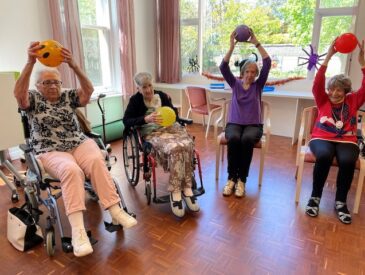Selecting the appropriate senior living community is a crucial choice. Inquiring about the correct information will assist you in discovering a facility that satisfies your current and future requirements. Ask about the staff training, company compliance standards, and whole-person care philosophy. It’s also good to find out how they handle complaints and concerns.
Contents
What is the community like?
The first impression of a senior housing Kansas City community will be the physical environment. Look for a clean, well-maintained facility with plenty of space for residents to socialize and enjoy amenities. Consider the size of the apartments and their bathrooms. A smaller apartment may be more appropriate if your loved one has mobility issues. Also, ask if the community offers on-site amenities that make it easier for residents to visit friends, shop, and keep doctor’s appointments. Exceptional communities have vibrant and active programs that help residents stay healthy and develop friendships with others. Watch for an event calendar that features trips, creative workshops, live music, and more.
What do you offer?
A senior living community may offer a variety of amenities and services. Independent living communities, often called retirement communities, offer apartments, cottages, or single-family homes on large campuses with common areas and dining options. They typically provide three meals daily and housekeeping services as part of a monthly fee. Assisted living communities may offer more structured activities and a higher staff-to-resident ratio than independent living. These communities assist with everyday activities like bathing, dressing, meal preparation, medication administration, etc. CCRCs are retirement communities that offer residents the flexibility to move between different levels of care based on their changing needs. They are an excellent choice for seniors seeking independent living with the assurance of future assistance. These communities are often designed to provide a safe and engaging environment.
What do you do to keep residents safe?
Most senior living communities have teams of staff members who work day and night to ensure their residents’ health, well-being, and safety. Ask how many people make up this team, how they keep residents safe (like fire drills, bathroom safety measures such as grab bars or railings, and emergency alert devices like wristbands and pendants), and whether the community performs background checks on their staff. Moving into a senior living community is often a transition to a smaller space, so you might be unable to bring everything from your previous home. Plan and downsize your items or arrange for storage elsewhere. Also, check if the community has a list of restricted items.
How do you manage complaints?
Although senior living communities strive to keep residents happy, disagreements can still occur between residents and staff members. Knowing how society manages complaints will help you determine whether the situation is one you want to consider for your loved one. Ask to speak with a few current residents and drop in during mealtimes to understand the social environment. A well-established and engaged social life is essential for older adults, especially those with memory issues. Find out about a community’s activities and if transportation is available for off-site events or shopping. Also, ask about regular housekeeping services and if laundry supplies are included. If not, pack a few items, like light cleaning supplies and a laundry basket.
Can we talk to references?
Most senior living communities allow prospective residents and families to talk to current or former residents about their experiences with the district. This will give families a feel for the community’s quality of life and level of care. Inquire about family support groups, if available, and how the community encourages family participation in care planning. The best senior living communities embrace the whole person and value their loved ones’ input. You’ll spend a lot of time with your neighbors, so it’s essential to understand the cultural makeup of the community before you move in. Ask about the diversity of the neighborhood and the types of activities. It’s also helpful to learn about meal options, including whether they offer vegetarian, gluten-free, or low-sodium choices.





